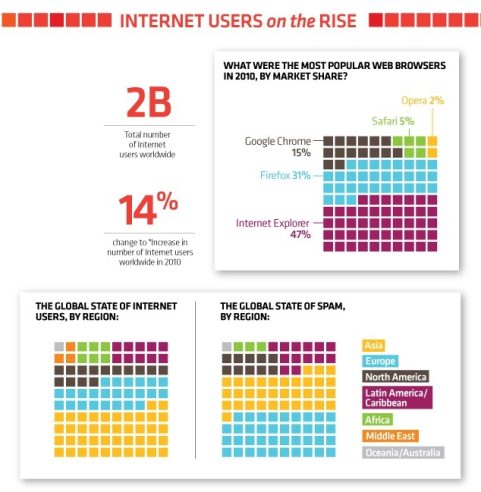There is zero doubt that 2010 was a booming year for the Internet. Social media emerged as a driving force for online and real-life activities with Facebook and Twitter continuing to lead the charge. Social news had some shakeups and shifts that put sites like Reddit on top.
Email is still relevant despite many pointing to its demise. Internet use in general is going up (of course) but the way we access the Internet seems to be changing.
To know what 2011 holds for us, it’s good to look back at where we’ve been. Thanks to our friends at Focus, we can do just that. This graphic puts it all into perspective and gives us a visual depiction of what the year really looked like online.
Click to enlarge.




